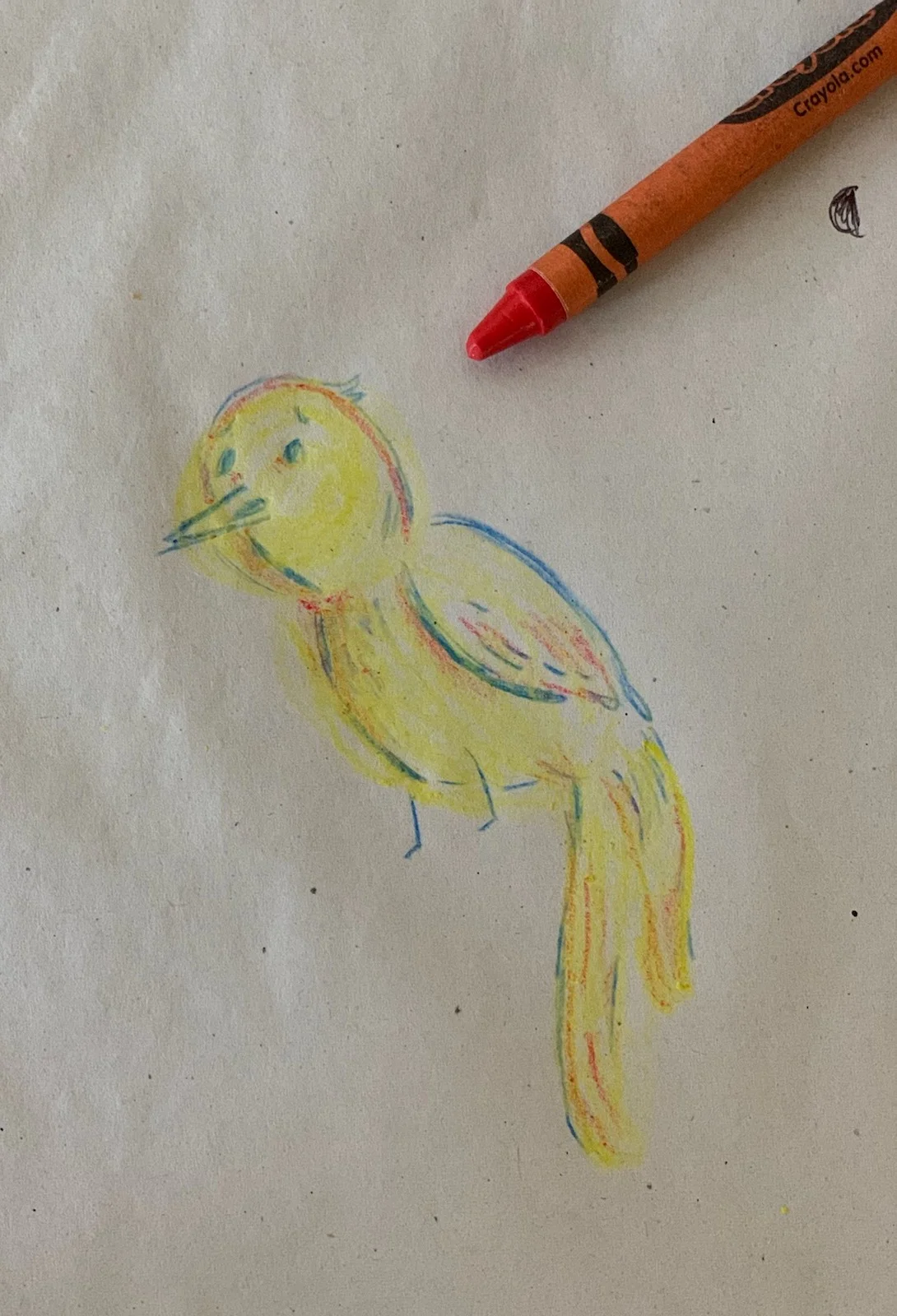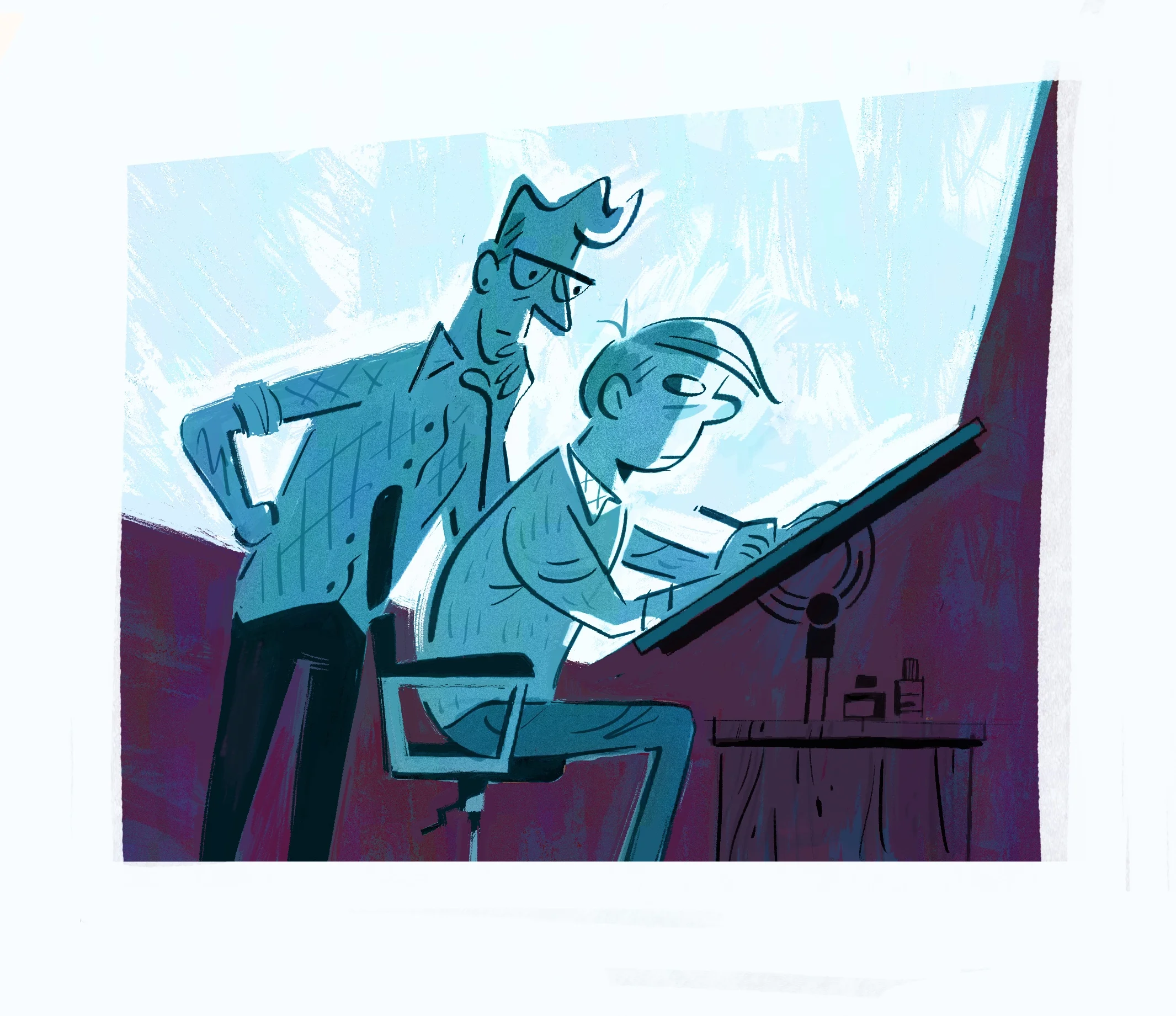Creative Collaboration, Love And Why Therapy Will help You with Both
Collaboration: The action of working with someone to produce or create something.
Frequently in my life and psychotherapy practice, I notice people struggle with the same themes in their creative collaborations that they are challenged in other areas of life.
The thing is, even if you hate collaborating, without any ability to work with others and maintain relationships it’s nearly impossible to have a viable career as a creative person, especially in Los Angeles, where most industries are inherently collaborative and involve teams of people who work on various aspects of a singular production.
Chances are, if you are struggling with creative collaboration, you have struggled with other relationships in your life, family, friends, romantic, etc. It's worth taking a look inside of yourself and trying to explore why that is and work towards changing it.
Sometimes collaboration is effortless and wonderful and other times it’s not so easy. It might bring up complicated, confusing feelings. Just like any relationship, creative collaborations are challenging and reveal unresolved emotional and interpersonal issues.
If you are struggling with a collaboration or a collective working experience here are some things to watch out for in yourself, and ideas of how to work with them. Working through and understanding these issues will help you with other meaningful relationships in your life, too.
PROBLEMS WITH TRUST :
If you have trust issues OR don’t trust people when you’re working with them, it’s nearly impossible to have a fruitful creative experience. And here’s the tricky part- you may have trust issues AND SOMETIMES, (but not always) you ARE working with untrustworthy people. Often it’s not entirely either/or, which makes being able to know and think about your relationship to trust important; so that you can better identify what is being triggered in you and verses is happening.
A litmus for this is to look back at your personal history of collaborating with people. If you ALWAYS encounter problems with trust, then there’s a good chance that despite some of the people you’ve worked with truly being untrustworthy, not all of them were and you probably have some work to do with that.
If you are working with someone with whom you have a history of problems, you may need to asses the relationship and decide if this is something that you to could work through and talk about, or if it is beyond repair and time to end the working relationship.
ENVY
It can be truly difficult to work with other people when their skills, abilities, and advantages activate feelings of envy. Envy can shut the door on many healthy, beautiful collaborative opportunities - and without you knowing it, you may feel attacked or judged by another person when that’s not what is happening in reality. It usually takes a lot of thought, honesty with yourself and exploration of your feelings of shame to be able to explore and acknowledge what you feel envious of in another. From there, much of the work is challenging yourself how to LEARN from the person you feel envious of, rather than focus on distancing yourself from them, or “destroying” them (Ie. Sour grapes, shit talk, finding reasons why they don’t deserve the success they’ve had).
ISSUES WITH CONTROL:
When you feel the need to control a project, it may be difficult to feel comfortable while you’re collaborating. Perhaps, your anxious things won’t get done, or done the right way if you don’t do it. Perhaps you think you have the best ideas and don’t want to use other people's ideas- that could actually be connected to unconscious feelings of Envy. Maybe, you just kind of want things to go your way.
The wish to be in control is often part of a larger feeling of not having enough control, related to a deeper fear about the consequences of things going wrong. It is very difficult to surrender to how powerless we are and can be in the world. Perhaps, for a variety of reasons, you have difficulty hearing and responding to feedback, which can make collaboration near impossible.
Part of the beauty of collaborating is experiencing the unexpected beauty other people can bring to a project, even when it’s not what you had originally envisioned. Feeling able to loosen your grip on control is KEY to being receptive to that beauty, and even to be able to build upon it.
OVER CONCERN WITH THE NEEDS OF OTHERS
If you are so obsessed with the emotional well being, and feelings of the other people you’re working with, you may not be able to focus on the work that needs to get done or you’ll take on way more then your fair share. You may become so preoccupied with other people's feelings, that you become afraid to speak up and assert what you truly believe in.
When you are so distracted by taking care of other people's feelings that you forget to then you have porous boundaries, you leave yourself vulnerable to the needs of others. It takes work, effort and an understanding of why setting limits is so difficult for you. This is an area tho, that I’ve seen people make a tremendous amount of change in their life by pushing through the discomfort of learning who to set boundaries with others.
INABILITY TO SET LIMITS, OR SPEAK UP FOR YOURSELF
If you hate working with other people because the effort it takes to set limits or speak up about your opinions is too difficult, it can be a real challenge to work effectively with other people. This often has its roots in anxiety, as well as the dynamics in early childhood relationships. If you were not given much space to speak up for yourself in your family- or were met with anger and push back when you did, you may find it very difficult as an adult to assert yourself. When working in a group, this can become even more difficult. But, it is so important to be able to communicate when in a group setting- so this is a big one to work through in service of being able to collaborate.
DIFFICULTY “BEING” WITH OTHERS
Some people just have a hard time being with other people. They feel awkward, nervous or overly-aware of the other person. The presence of another person seems to “get in the way” of being able to think. Many underlying things could be at play with this, that are different for everyone. There are so many things that could be happening if this is something you experience, and it’s probably unique to you. Perhaps you have social anxiety, which is something that not only could you work through- but learning to collaborate and work in groups would help. Also, we learn to be with and play with others when we were children. It’s not uncommon to have difficulty being with others as an adult if there was some sort of relational trauma or traumatic experience in childhood that has yet to be resolved. This could range from family dynamics to having been bullied and outcasted at school. It is possible to work through these experiences and can be extremely empowering to understand the impact they’ve been having on you and work through them.
————
Sometimes you’ll have one or more of these issues pop up in different ways, at different times, or even feel a few of these things simultaneously. It’s totally normal to have these feelings while collaborating, but it is important to not be controlled by them and have them render working with others an impossibility.
Therapists so often describe the process of therapy as collaborative on their websites, because it very much is- it’s a process where you grow and heal through collaboration. So I mean with this with my whole heart, if you are struggling with the collaborative process in your career- you will benefit from exploring why you are in therapy, because therapy in a good treatment, you are challenged to explore and experience what collaboration feels like, how you behave while collaborating in an environment where the goal of the collaboration is to help you work through and heal the underlying issues that make it difficult. You are welcome to reach out and find out more about what therapy is, and how it could help.
Life is a collaborative process. We need each other, as much as we try at times to pretend we don’t, we really do.






